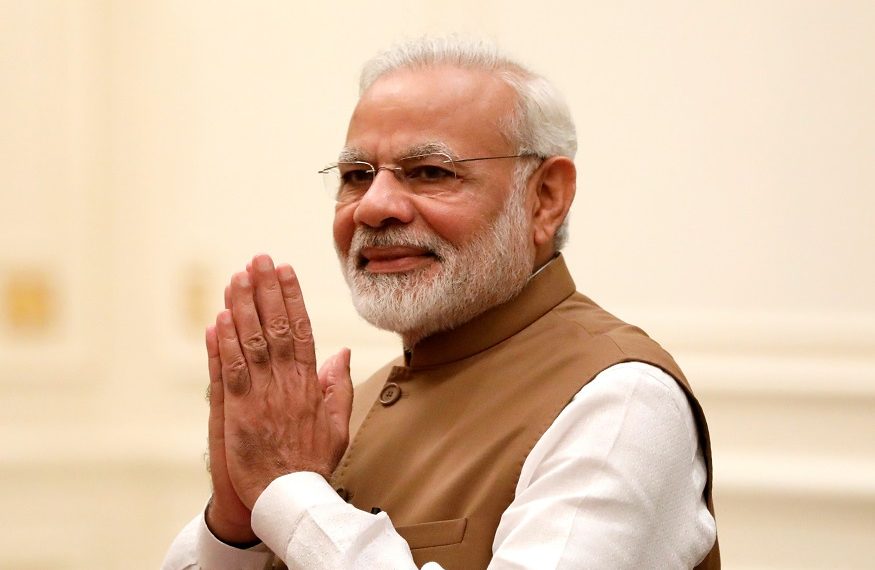Khalid Al-Falih, representative of the defacto leader of the OPEC, Saudi Arabia made a revelation pointing how Prime Minister Modi’s calls to protect Indian consumers from rising oil prices impacted OPEC’s recent decisions to delay production cuts despite continuing fall in crude oil prices.
"I don't need permission from any foreign government to cut," says Saudi Arabia's Al-Falih at OPEC+ meetings https://t.co/A1drq7jz24 pic.twitter.com/mDBE6cshbK
— Bloomberg TV (@BloombergTV) December 6, 2018
Al Falih is the Minister of Energy, Industry and Mineral Resources of Saudi Arabia and Chairman of Saudi Aramco, the most profitable company in the world according to Bloomberg News.
At the OPEC+ meeting in Vienna, Austria, Al Falih said, “President Trump is the President of the largest consuming country of petrol, 21 Million (barrels) I believe and thereabouts, that’s 20 per cent of global markets if not more. And the consumer in the US just like the consumer in France, just like a consumer in India, just like a consumer in Saudi Arabia, wants affordable energy. So he has every right to wish for affordability of energy for the citizens of the United States and he is very vocal using his favourite communication tool which is Twitter, and we hear him and we take his views seriously.”
President Trump had tweeted on November 12, “Hopefully, Saudi Arabia and OPEC will not be cutting oil production. Oil prices should be much lower based on supply!”. This came hours after Al-Falih said in an OPEC panel meeting that the group needed to do “Whatever it takes to balance the market” and hinted that a cut of 1 million barrels per day may be needed to restore market balance amid fears of oversupply in the market.
Hopefully OPEC will be keeping oil flows as is, not restricted. The World does not want to see, or need, higher oil prices!
— Donald J. Trump (@realDonaldTrump) December 5, 2018
On November 21, when oil prices tanked Trump tweeted, “Oil prices getting lower. Great! Like a big Tax Cut for America and the World. Enjoy! $54, was just $82. Thank you Saudi Arabia, but let’s go lower!”
Oil prices getting lower. Great! Like a big Tax Cut for America and the World. Enjoy! $54, was just $82. Thank you to Saudi Arabia, but let’s go lower!
— Donald J. Trump (@realDonaldTrump) November 21, 2018
Khalid Al Falih also stated how in three different events, the latest one being the G20 Summit in Buenos Aires, Argentina, PM Modi stressed on increasing oil production by OPEC countries to keep oil prices low in order to safeguard Indian consumers from rising oil prices and volatility. He said, “But we also take the views of Prime Minister Modi who is equally vocal. We just met with him in Buenos Aires and privately he made those points very, very strong, that he does care for Indian consumers. I’ve seen him three times in India (at) various energy events in India where he also was very vocal. So the consumer is an important part of our deliberations even when they are not physically with us in the room…”
At the third annual meeting in October, with chief executives of top global and India Oil and gas companies, Modi had raised the concern that crude oil prices, which are at a four-year high, was affecting global growth, causing inflation and upsetting budgets of developing countries like India. PM Modi had also pushed the oil giants to invest in oil and gas exploration and production in the country. To this concern regarding consumers, Al Falih had commented, “We heard it today, loud and clear, from prime minister.”
Crude oil prices have tanked further and earlier hints from OPEC countries to deliberate on cutting production by 1 Million bpd are yet to materialize and seem to be dependent on Russia which is not likely to cut production at this time of sanctions and rising tensions with Ukraine.
Back home the Indian government has been ruthlessly criticized by the opposition for rising oil prices even though external factors were to blame but recent drop in retail oil prices by about 8 per cent in the last 30 days has given major relief to consumers. What is most heartening is that the pressure from the Indian Prime Minister is being publicly admitted to have directly influenced the international oil cartel, resulting in this relief.
